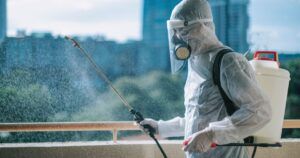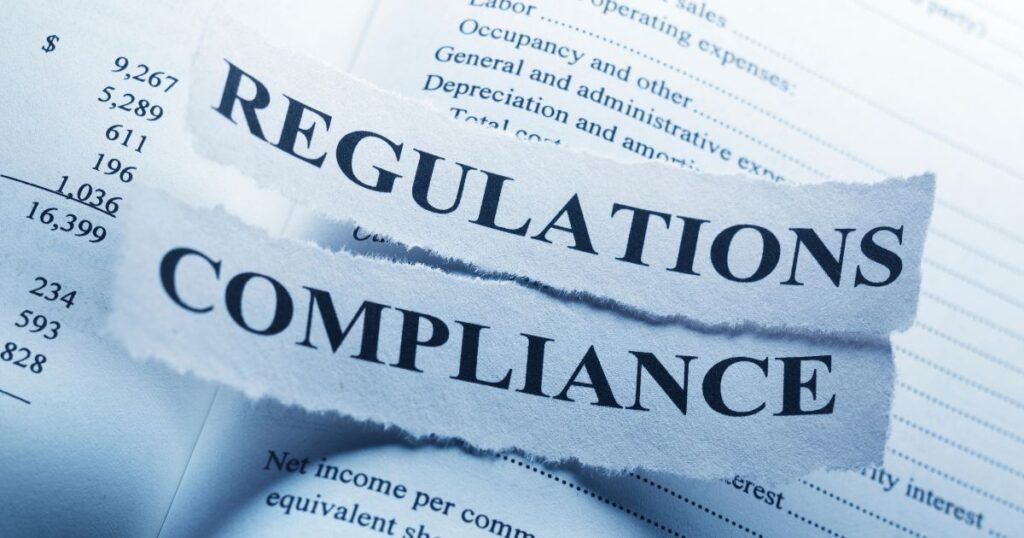Understanding pest control regulations is crucial for homeowners and businesses alike. These regulations ensure safe and effective pest management while protecting human health and the environment. Navigating these laws can be complex, but being informed helps you comply and choose appropriate pest control methods.
In many regions, pest control professionals must be licensed and follow specific guidelines regarding the use of pesticides. You need to be aware of local regulations that govern pest control practices to avoid potential fines and ensure the safety of your property.
Staying updated on these laws keeps your spaces safe and contributes to responsible pest management in your community. Engaging with pest control regulations can lead you to better practices that protect your property and the environment.
Legal Framework of Pest Control
Understanding pest control regulations involves navigating a complex landscape of federal and state laws. Compliance with these regulations protects public health, the environment, and the effectiveness of pest control measures.
Federal and State Regulations
The Environmental Protection Agency (EPA) oversees pest control regulations at the federal level, particularly under the Federal Insecticide, Fungicide, and Rodenticide Act (FIFRA). This law requires all pesticide products to be registered with the EPA, and labels must provide safety and usage instructions.
State governments also play a critical role. Each state has its pest control laws, adding layers of specific requirements. For example, states typically regulate licensing for pest control operators, which mandates training and adherence to state and federal guidelines. You must familiarize yourself with the regulations applicable in your state to ensure compliance.
Understanding the Legal Requirements
Legal requirements for pest control encompass various aspects, including licensing, pesticide application, and reporting incidents of pesticide misapplication. To obtain a license, pest control operators must meet certain educational qualifications and pass examinations.
Pest control laws also dictate how to handle and dispose of pesticides safely. Guidelines regarding the proper application methods must be followed to minimize risk to humans and the environment. Regular reporting and record-keeping help ensure transparency and accountability in pest management practices.
Ensuring compliance with these legal aspects is crucial for your operations and protects public health and environmental integrity.
Certification and Licensing
Certification and licensing are essential components of pest control that ensure services are reliable and safe. Understanding how to acquire the appropriate licenses and recognizing the role of certified professionals can help you make informed decisions.
Acquiring Pest Control Licenses
You must obtain the licenses specific to your state or region to provide pest control services. Each jurisdiction has its requirements, which typically include:
- Educational prerequisites: Some areas may require a degree or coursework related to pest management.
- Examinations: You will likely need to pass a state or national exam that tests your knowledge of pest control methods and regulations.
- Continuing education: Many states require ongoing education to maintain your license and stay updated on best practices.
It’s crucial to check with local regulatory agencies for specific license types, such as commercial or structural pest control licenses. Recognizing the importance of licensed pest control services helps ensure you’re hiring professionals who adhere to industry standards.
Role of Certified Pest Professionals
Certified pest control experts play a vital role in managing pest-related issues safely and successfully. Their certifications indicate they have the knowledge and skills to handle pest control situations effectively.
- Expertise: Certified professionals understand pest biology and the most effective treatment methods for different infestations.
- Regulatory compliance: They know local laws governing pesticide use and environmental safety.
- Customer safety: By employing certified technicians, you can be assured that only approved pesticides are used in a manner that protects your health and the environment.
Hiring certified pest control experts ensures compliance with regulations and provides peace of mind that qualified individuals handle the job.
Compliance and Safe Practice

Compliance in pest control is essential for ensuring the environment’s safety and public health. By adhering to established protocols and maintaining industry standards, you contribute to effective pest management practices.
Adhering to Pest Control Protocols
Following pest control protocols is crucial for maintaining compliance and ensuring safe practices. These protocols often include guidelines from regulatory bodies that dictate methods and materials used in pest management.
You should be familiar with state and federal regulations concerning pesticide applications. This knowledge helps you choose appropriate products and techniques. For instance, always check for necessary certifications and training requirements before applying pesticides.
Documenting each treatment regularly can also support compliance. Keep detailed records of the applications, products used, and any safety measures taken. This documentation not only helps in regulatory inspections but also improves pest control strategies over time.
Maintaining Standards in Pest Management
Maintaining high standards in pest management involves consistently implementing best practices. Stay updated on the latest advancements in pest control technologies and methodologies.
Training is essential for you and your team. Regular workshops can boost your knowledge and improve compliance with safety standards. Consider also developing a safety protocol checklist that includes personal protective equipment (PPE) requirements and safe handling instructions.
Engaging in routine inspections of your equipment and process enhancements will further ensure compliance. Schedule these assessments to identify areas for improvement and compliance gaps. Adopting such practices will foster a culture of safety and efficiency within your pest management operations.
Critter Stop: The Licensed Solution in Texas
In Texas, pest control services must adhere to specific legal requirements. These include training personnel and obtaining proper licensing to ensure safe and effective practices.
Critter Stop meets all these regulatory standards. They are a licensed pest control service specializing in humane wildlife removal. When you choose Critter Stop, you can be assured of compliance with all state regulations.
Key benefits of hiring a licensed pest control service like Critter Stop include:
- Expertise: Trained professionals know the legal guidelines.
- Safety: Licensed companies use safe methods for pest removal.
- Effectiveness: Proven techniques are applied for your specific problems.
Critter Stop has a fantastic reputation and online customer reviews because it provides high-quality work and excellent customer service. Its satisfied clients often recommend it for its reliable and humane practices.
If you’re facing issues with wildlife or pests, calling Critter Stop at (214) 234-2616 for a free inspection can help resolve your problem promptly. Their expertise ensures that your property is treated carefully and effectively, adhering to all necessary laws.









 The 2024 virtual Men’s Round Table will be held Q4, 2024, date TBD.
The 2024 virtual Men’s Round Table will be held Q4, 2024, date TBD.













